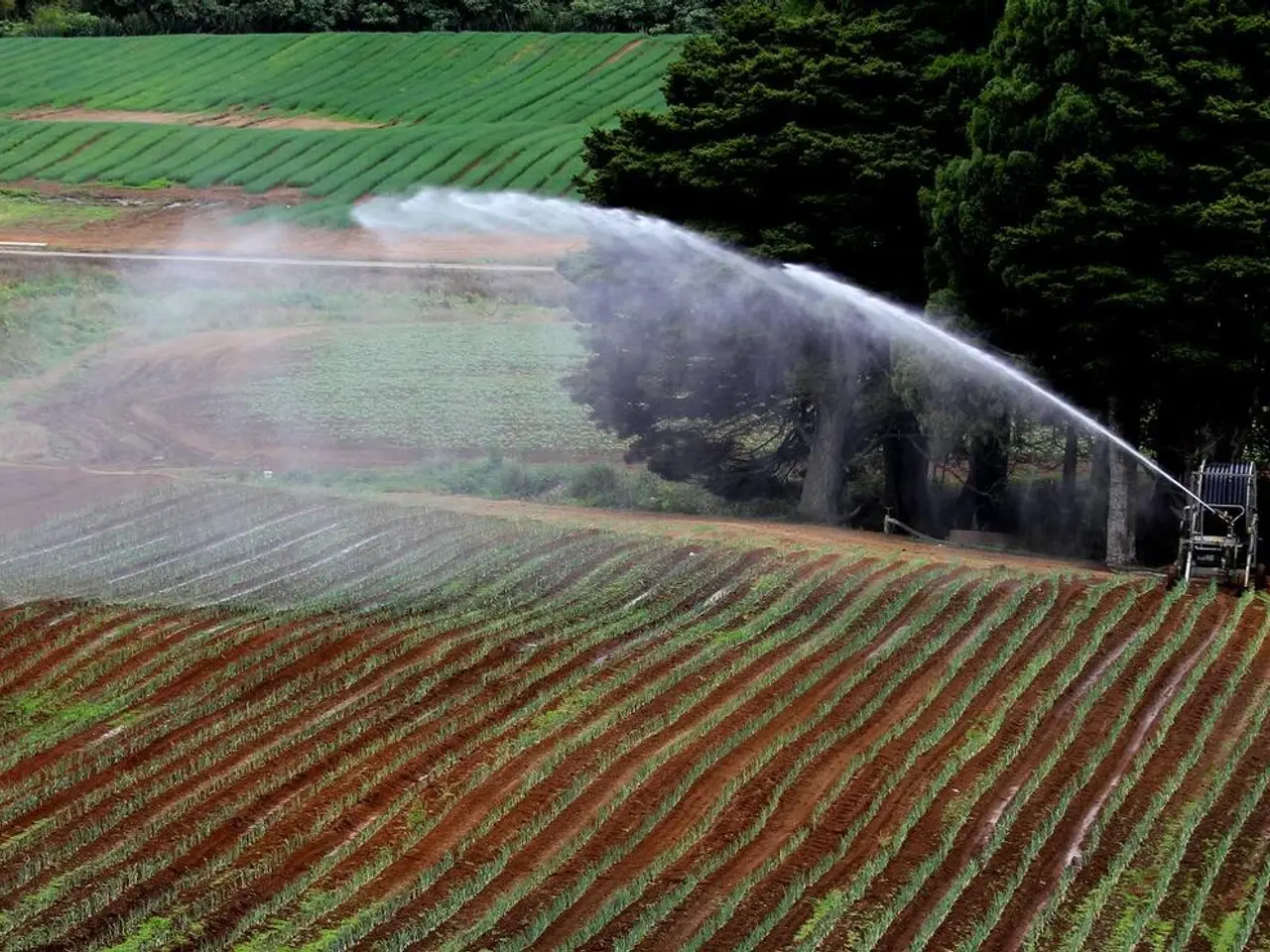Relentless farming proves a challenge for the unwary - no lucrative yields in sight
Financial Challenges Facing UK Farming in 2025
The financial sustainability of UK farming is under pressure due to a combination of factors, including reduced government subsidies, rising costs, inheritance tax concerns, and capital taxation.
Reduction and Capping of Subsidies
The phasing out and capping of Basic Payment Scheme (BPS) payments for 2025 will intensify financial strain for farmers. The closure of schemes like the Sustainable Farming Incentive (SFI) further limits alternative support options, increasing reliance on income from farm operations alone. England’s farming budget is forecast to be cut by about £100 million annually under the new Labour government.
Inheritance tax and Capital Taxes
Policy uncertainty around inheritance tax relief for farming estates is a growing concern. Capital requirements are increasing not only for stock and inputs but also for investments in agritech and environmental compliance. These factors put pressure on access to capital.
Rising Production Costs and Environmental Pressures
Climate change leads to erratic weather, soil degradation, and biodiversity loss, escalating input needs such as irrigation, nutrient supplements, and pest management. These environmental impacts drive up costs and reduce farm resilience and yields, undermining profitability and long-term sustainability.
Economic and Market Uncertainties
Market volatility and the potential closure of biofuel plants due to trade agreements threaten income diversification options. Uncertain future income and tighter margins discourage the adoption of costly but potentially beneficial innovations like agritech.
Solutions and Mitigations
- Maximizing Available Grants and Supports
- Farmers can make use of Countryside Stewardship grants, reopened capital grants (albeit capped), and existing SFI agreements to help bridge income gaps left by subsidy reductions.
- Targeted cashflow management, including budgeting and monitoring, is essential to maintain efficiency under tighter finances.
- Diversification and Innovation
- Farmers increasingly explore income diversification through on-farm retail, rural tourism, and small-scale food processing to supplement traditional income.
- Greater use of agritech holds promise for improving efficiency and sustainability. However, upfront costs and adoption barriers remain significant.
- Financial and Succession Planning
- The growing complexity and uncertainty in inheritance tax policy necessitate professional advice on estate planning.
- Agricultural business consultants and financial planners are in higher demand to help farmers navigate economic, tax, and investment challenges.
Summary of the Inheritance and Capital Tax Context
- Inheritance tax reliefs have historically allowed farm assets to transfer with reduced tax liabilities, protecting family farming continuity. However, expected policy shifts and budget cuts raise concerns about potential tightening or phasing out of these reliefs, increasing the tax burden on successors.
- Capital taxes related to investments in stock, land, and technology are increasing due to the need for more upfront capital amid rising costs and regulatory demands. Effective use of grants and financial planning is essential to manage these pressures.
In conclusion, UK farming’s financial sustainability in 2025 is challenged by subsidy reductions, tax uncertainties (particularly inheritance tax relief), rising costs from environmental stresses, and market instability. Addressing these requires a combined approach of maximizing support, careful financial and succession planning, diversification of income, and strategic adoption of agritech, supported by professional advisory services.
These insights come from recent authoritative sector analyses and expert commentary on the evolving financial and policy landscape impacting UK farms. Other factors, such as the potential for solar panels as an income source, the decline in employment in agriculture, and the imposition of inheritance tax, also play a role in the financial challenges facing UK farming.
- The phasing out of financial support like the Basic Payment Scheme and the Sustainable Farming Incentive, along with the potential tightening or phasing out of inheritance tax reliefs, may put pressure on farmers' personal-finance and business, as they face increasing capital taxes associated with investments in stock, land, and technology.
- To maintain financial stability and sustainability, it is crucial for UK farmers to diversify their income sources through means like on-farm retail, rural tourism, and small-scale food processing, while also carefully planning their finances and succession, seeking advice from agricultural business consultants and financial planners, and strategically adopting agritech, despite its upfront costs and adoption barriers.




